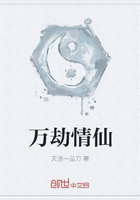As to this, many systems are offered to us in metaphysics. One of these is the influxus physicus, that the relation of spirit is of a corporeal nature, that the object is related to mind as bodies are to one another - a conception like this is very crude. How does Descartes understand the unity of soul and body? The former belongs to thought, the latter to extension; and thus because both are substance, neither requires the Notion of the other, and hence soul and body are independent of one another and can exercise no direct influence upon one another. Soul could only influence body in so far as it required the same, and conversely - that is, in so far as they have actual relation to one another. But since each is a totality, neither can bear a real relation to the other. Descartes consistently denied the physical influence of one on the other; that would have signified a mechanical relation between the two. Descartes thus established the intellectual sphere in contradistinction to matter, and on it based the independent subsistence of mind; for in his cogito ‘I’ is at first only certain of itself, since I can abstract from all. Now we find the necessity of a mediator to bring about a union of the abstract and the external and individual. Descartes settles this by placing between the two what constitutes the metaphysical ground of their mutual changes, God. He is the intermediate bond of union, in as far as He affords assistance to the soul in what it cannot through its own ******* accomplish, so that the changes in body and soul may correspond with one another.(38) If I have desires, an intention, these receive corporeal realization; this association of soul and body is, according to Descartes, effected through God. For above (p.
239) we saw that Descartes says of God that He is the Truth of the conception: as long as I think rightly and consistently, something real corresponds to my thought, and the connecting link is God.
God is hereby the perfect identity of the two opposites, since He is, as Idea, the unity of Notion and reality. In the Idea of Spinoza this is worked out and developed in its further moments.
Descartes’ conclusion is quite correct; in finite things this identity is imperfect. Only the form employed by Descartes is inadequate; for it implies that in the beginning there are two things, thought or soul and body, and that then God appears as a third thing, outside both - that He is not the Notion of unity, nor are the two elements themselves Notion. We must not however forget that Descartes says that both those original elements are created substances. But this expression ‘created’ pertains to the ordinary conception only and is not a determinate thought; it was Spinoza, therefore, who first accomplished this return to thought.
1. Brucker. Hist. crit. phil. T. IV. P. II. pp. 203-217; Cartes. De Methodo, I-II (Amstelod. 1672, 4), pp. 2-7 (Euvres complètes de Descartes publiées par Victor Cousin, T. I. pp. 125-133;Notes sur l'éloge de Descartes par Thomas (Euvres de Descartes publiées par Cousin, T. I), p.
83, et suiv.; Tennemann, Vol. X. pp. 210-216.
2. Spinoza: Principia philosophi? Cartesian? (Bendicti de Spinoza Opera, ed. Paulus. Jen?, 1802, T.I.), p. 2.
3. Cartes. Principia philosophi?, P. I. § 1-6 (Amstelod. 1672, 4), pp. 1, 2 (Euvres, T. III. pp.
63-66); cf. Meditationes de prima philosophia, I. (Amstelod. 1685, 4), pp. 5-8 (Euvres, T. I. pp.
235-245); De Methodo, IV. p. 20 (pp. 156-158).
4. Cares. Principia philosophi?, P. I. § 7, 8, p. 2 (pp. 66, 67).
5. Cartes. De Methodo. IV. pp. 20, 21 (p. 158); Spinoza: Principia philosophi? Cartes, p. 14.
6. Cartes. De Methodo, IV. p. 21 (p. 159); Epistol. T. I. ep. 118 (Amstelod. 1682, 4), p. 379(Euvres, T. IX. pp. 442, 443).
7. Cartes. Responsiones ad sec. objectiones, adjunct? Meditationibus de prima philosophia, p.
74 (p. 427); Spinoza: Principia philosophi? Cartes., pp. 4, 5.
8. Appendix ad Cartes. Meditationes, continens objectiones quint. p. 4 (Euvres, T. II. pp. 92, 93).
9. Cartes. Principia philosophi?, P. I. § 9, pp. 2, 3 (pp. 67, 68).
10. Ibid. P. I. § 11, p. 3 (pp. 69, 70).
11. Cartes. Respons. ad sec. object.: Rationes more geometr. dispos., Postulata, p. 86 (pp. 454, 455); Spinoza: Principai philosophi?, Cartes., p. 13.
12. Cartes. Princip. philos., P. IV. § 196, pp. 215, 216 (pp. 507-509); Meditation. VI. p. 38(pp. 329, 330); Spinoza: Principa philos. Cartes., pp. 2, 3.
13. Cartes. Respons. ad sec. object.: Rat. more geom. dispos., Axiomata V., VI. p. 86 (p. 453), et Propositio IV. p. 91 (pp. 464, 465); Meditationes, II. pp. 9-14 (pp. 246-262).
14. Cartes. De Methodo, IV. p. 21 (pp. 158, 159); Spinoza: Principia philosoph. Cartes., p. 14.
15. Cartes. Principia philosophi?, P. I. § 13, pp. 3, 4 (pp. 71, 72).
16. Cartes. Respons. ad sec. object: Rationes more geom. dispos., Def. I. p. 85 (pp. 451, 452), et Proposit. IV. p. 91 (pp. 464, 465); Meditationes, III. pp. 15-17 (pp. 263-268).
17. Cartes. Principia philos., P. I. § 20, p. 6 (pp. 76, 77); Meditationes, III. pp. 17-25 (pp.
268-292); De Methodo, IV. pp. 21, 22 (pp. 159-162); Spinoza: Principia philos. Cartes., p. 10.
18. Cartes. Principia philos. P. I., § 14, p. 4 (pp. 72, 73).
19. Cartes. Resp. ad sec. obj.: Rat. more geom. disp., Ax. III-VI., X., Prop. I. pp. 88, 89 (pp.
458-461); Spinoza: Princ. phil. Cart., pp. 14-17.
20. Spinoza: Princip. philos. Cart., p. 20; Cartesii Resp. ad sec. obj.: Rat. more geom. dispos., Propos. II. p. 89 ) pp. 461, 462).
21. Cartes. Principia philosophi?, P. I. § 15, 16, 18, 24, pp. 4, 5, 7 (pp. 73-75, 78, 79).
22. Cartes. Principia philosophi?, P. I. § 24-26, p. 7 (pp. 79, 80).
23. Ibid. P. I. § 29, 30, 35, 36, 38, 43, pp. 8-11 (pp. 81-86, 89); Meditationes, IV. pp. 25, 26(pp. 293-297).
24. In the Lectures of 1829-1830 the philosophy of Malebranche is inserted here. (Editor's note).















